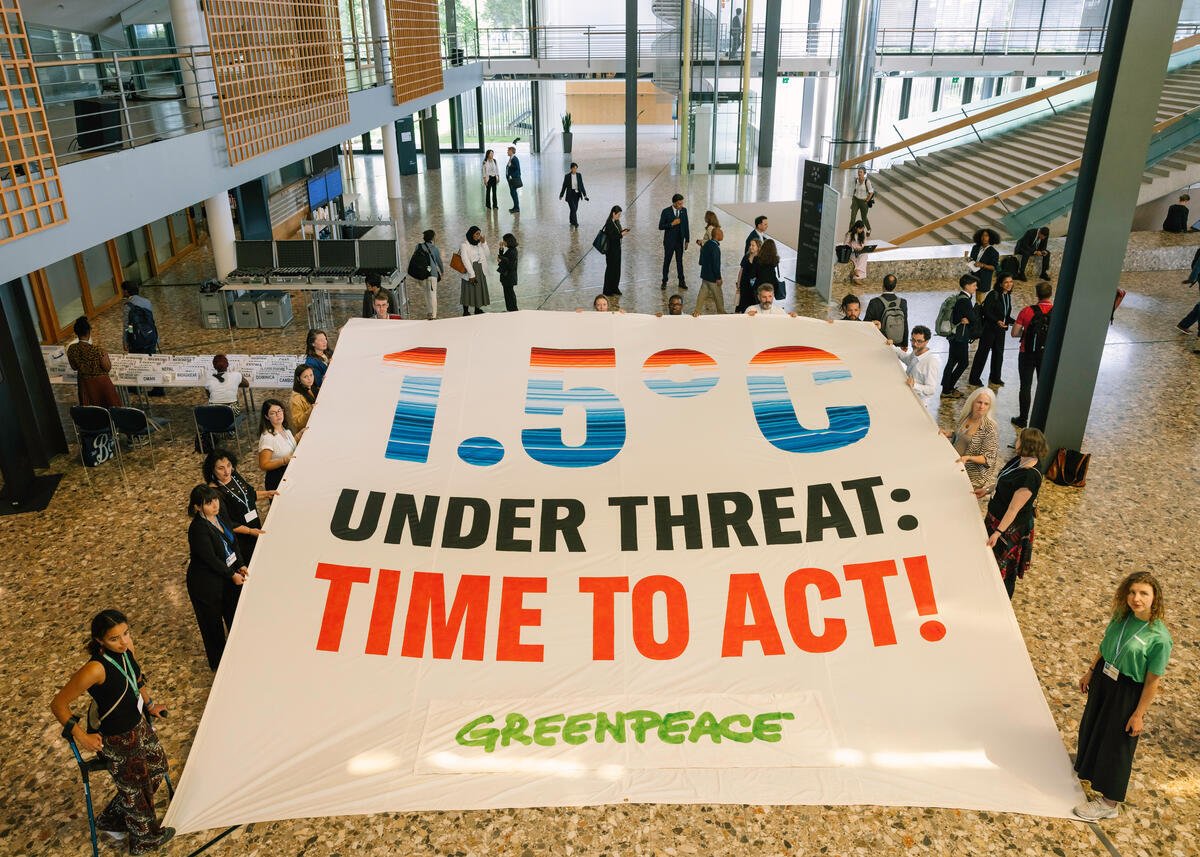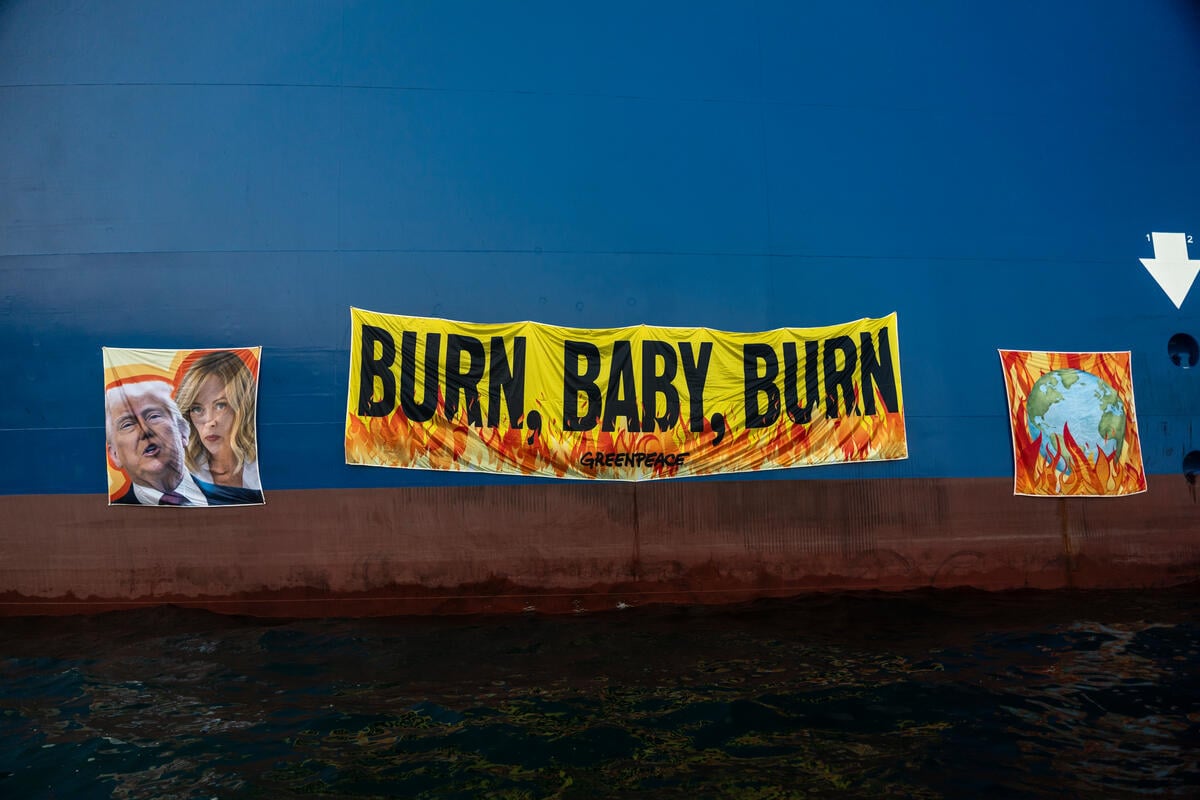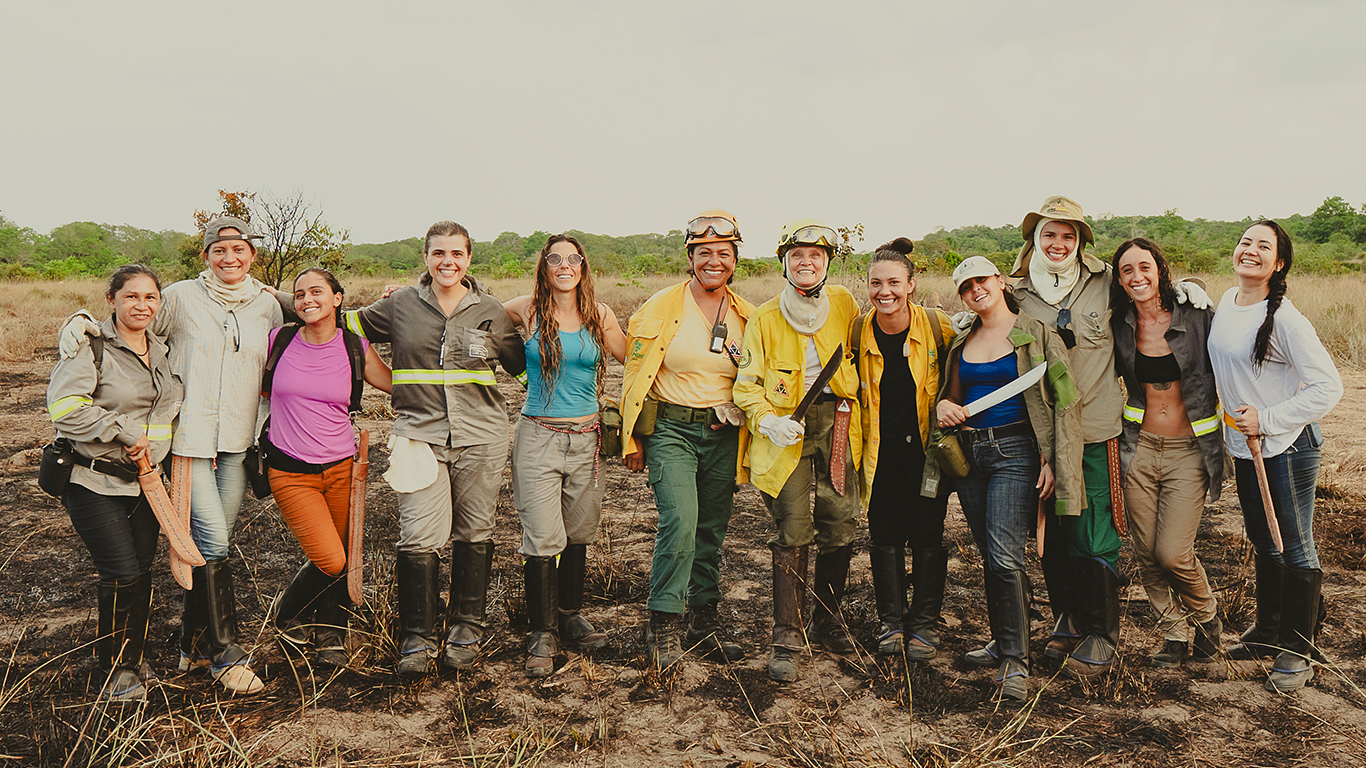The gavel has come down at COP26, officially ending this year’s UN Conference on Climate Change. The 1.5 C goal stays alive, and the new Glasgow Agreement recognises the need for deep emissions cuts in this decade but the new climate deal is a long way from the action we need now.
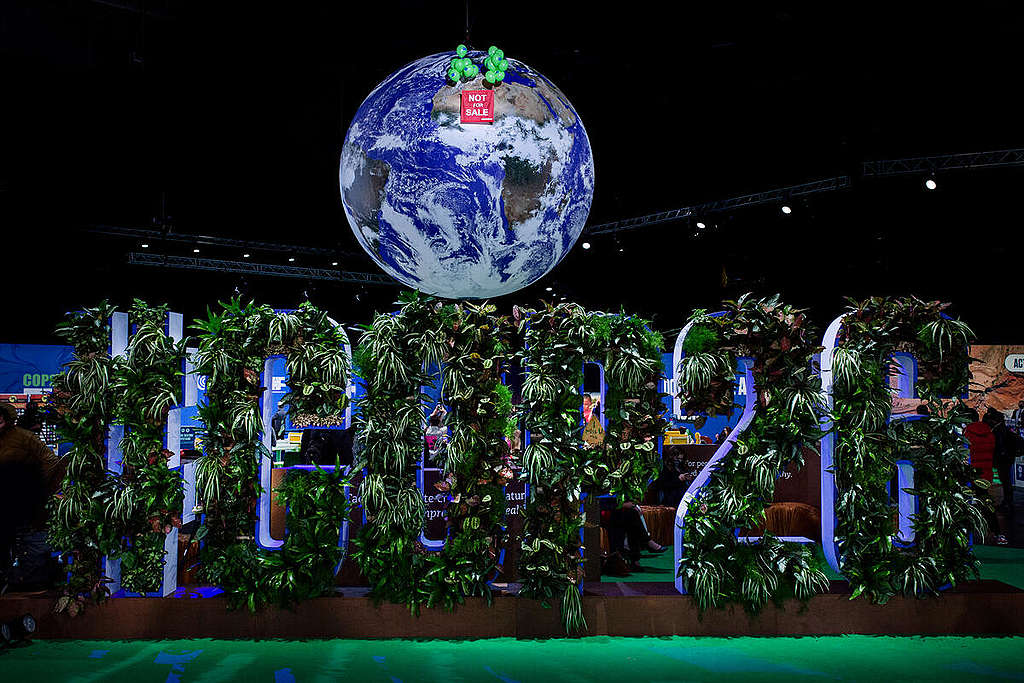
Week one was about setting expectations, exposing greenwashing scams, and naming the countries – Saudi Arabia, Australia, Brazil, USA – most responsible for blocking progress. Week two was about the negotiations themselves – pushing the UK COP Presidency to strengthen the text, ensure that countries would not have five years to strengthen their targets and exposing attempts by offsets scammers to weaken the carbon text even further.
COP26 was a big one, as countries had promised to do more by the Glasgow talks, and from the start, Glasgow was meant to deliver on firmly closing the gap to 1.5C. That didn’t happen, a clear betrayal of the millions of people already suffering from the climate crisis. at COP27, to be held in Egypt in 2022, countries will need to come back with much stronger targets and clearly defined pathways.
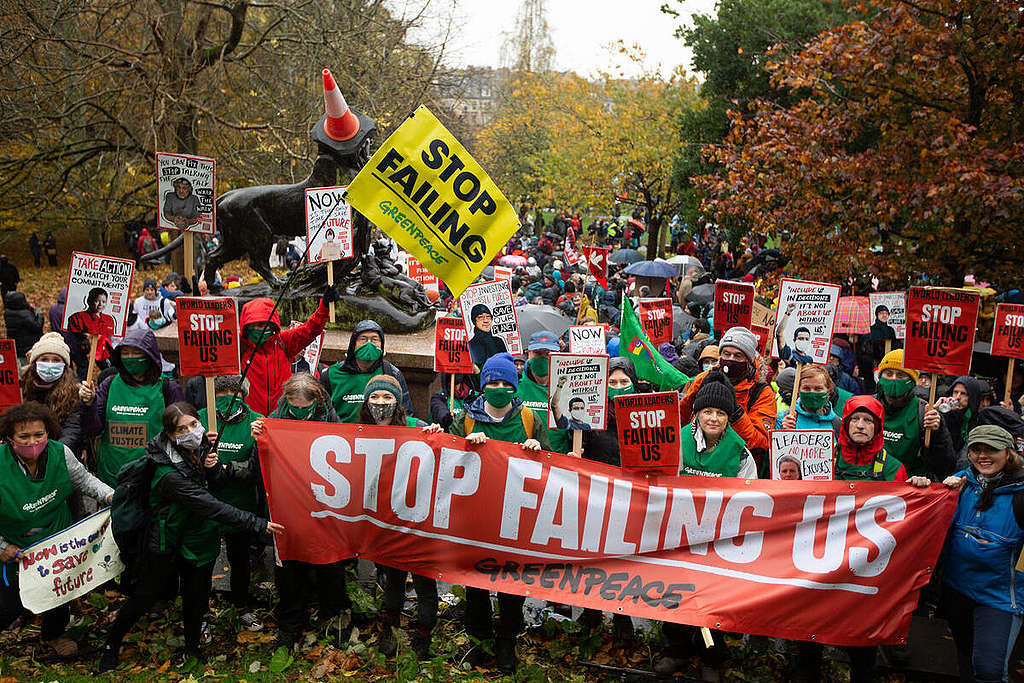
While COP26 did see some progress – not enough, but some – doubling down on toxifying the fossil fuel industry and securing climate justice for the most vulnerable in the world will need to remain top of the agenda next year when COP27 goes to Egypt.
Main outcomes from COP26
Frontline Activism
Firstly, let’s give credit where credit is overwhelmingly overdue: without the Indigenous Leaders, youth activists, and the countries on the frontlines of the climate emergency fighting for the urgency needed, the climate talks would have failed.
Both inside and outside the COP conference centre, voices from countries and communities most affected by the impacts of the climate crisis demanded action from world leaders. In the days leading up to the opening of COP26, young activists from Namibia, Uganda, Bangladesh and Mexico sailed into COP on board Greenpeace’s ship, the Rainbow Warrior, to tell leaders to ‘stop failing us.’ Days later, activists including Greta Thunberg and Greenpeace International Executive Director Jennifer Morgan, challenged Mark Carney, the UN Special Envoy on Climate Action and Finance at a side event on voluntary offsets, calling it greenwash. These actions, amongst the daily relentless demands from frontline activists, highlighted inaction and the insufficiency of early drafts, forcing country negotiators to redeliver.
These groups will no longer, nor should they have to, tolerate many more outcomes like this. Why should they, when they are fighting for their futures when they are the least responsible for creating the crisis?
Adaptation
Climate vulnerable countries are suffering real loss and damage from the climate crisis today but what was promised in the final discussion text is nothing close to what’s needed on the ground. Much more ambition is still needed as well as transparency about the nature of different countries’ current commitments.
Expectations that COP26 would finally deliver real support for communities needing to recover and rebuild in the aftermath of climate disasters were high but the outcome “is an insult to the millions of people whose lives are being torn apart by the climate crisis”, as said by Teresa Anderson, Climate Policy Coordinator at ActionAid International.
Although rich countries finally did begin to respond to the calls of more climate-vulnerable countries for funding and resources to cope with rising temperatures, acknowledgement is not enough. The world’s nations who are disproportionately responsible for rising temperatures need to commit what they already promised and even more.
Phasing-out fossil fuels
The compromise in the Glasgow Climate Pact on phasing out coal and fossil fuel subsidies is weak but it is the first time a call for coal reduction appears on a COP final text.
The call for emissions reductions of 45% by the end of this decade is still in line with what we need to do to stay under 1.5C and keeps the science in this deal. But countries need to specify how much and by when they will cut emissions. And a focus on a just transition will be essential. Nevertheless, the signal that the era of coal is ending has been sent.
Offsets
Disappointingly, the offsets scam got a boost in Glasgow. The creation of new loopholes endangers nature, Indigenous Peoples, and the 1.5C goal itself. Although the UN Secretary-General announced a new Group of Experts to scrutinize the role of offsets, much work still needs to be done to stop the cheating giving big emitters and corporations a pass.
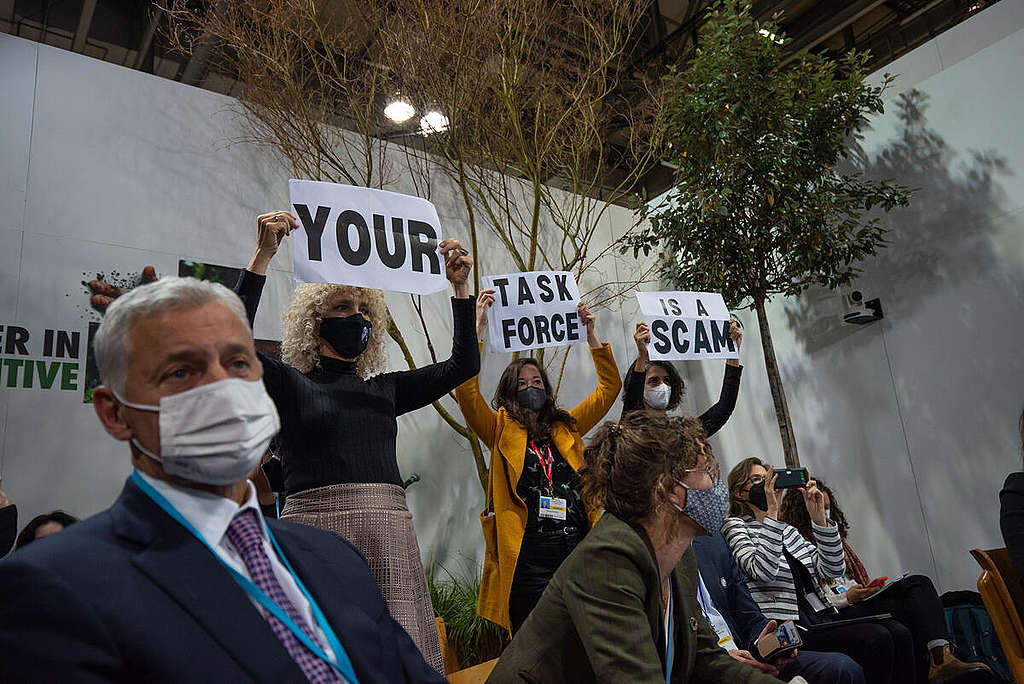
What happens next
Our climate is now breaking down around us, you see it every day in wildfires, hurricanes, droughts, and melting ice. There is no time to lose and it’s in the interests of all countries, including those who still burn coal, to transition to clean renewable energy, and richer countries need to do more to support that shift. Our future depends on it.
COP27 will reconvene next year in Egypt where climate justice activists will intensify raising awareness about the severe climate impacts facing the continent and securing more support for adaptation and loss and damage. In the meantime, we must continue to mobilise and urgently create irrepressible pressure that finally ends the era of all fossil fuels.

